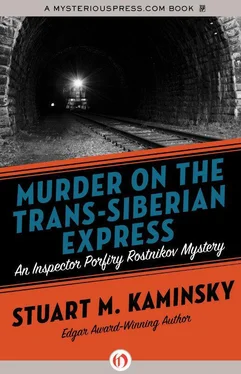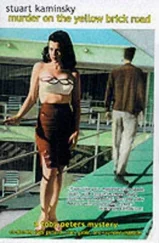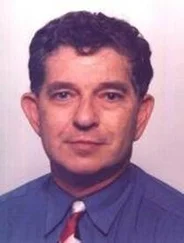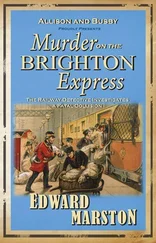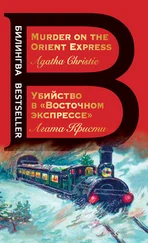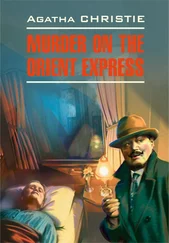Stuart Kaminsky - Murder on the Trans-Siberian Express
Здесь есть возможность читать онлайн «Stuart Kaminsky - Murder on the Trans-Siberian Express» весь текст электронной книги совершенно бесплатно (целиком полную версию без сокращений). В некоторых случаях можно слушать аудио, скачать через торрент в формате fb2 и присутствует краткое содержание. Год выпуска: 2012, Жанр: Полицейский детектив, на английском языке. Описание произведения, (предисловие) а так же отзывы посетителей доступны на портале библиотеки ЛибКат.
- Название:Murder on the Trans-Siberian Express
- Автор:
- Жанр:
- Год:2012
- ISBN:нет данных
- Рейтинг книги:3 / 5. Голосов: 1
-
Избранное:Добавить в избранное
- Отзывы:
-
Ваша оценка:
- 60
- 1
- 2
- 3
- 4
- 5
Murder on the Trans-Siberian Express: краткое содержание, описание и аннотация
Предлагаем к чтению аннотацию, описание, краткое содержание или предисловие (зависит от того, что написал сам автор книги «Murder on the Trans-Siberian Express»). Если вы не нашли необходимую информацию о книге — напишите в комментариях, мы постараемся отыскать её.
Murder on the Trans-Siberian Express — читать онлайн бесплатно полную книгу (весь текст) целиком
Ниже представлен текст книги, разбитый по страницам. Система сохранения места последней прочитанной страницы, позволяет с удобством читать онлайн бесплатно книгу «Murder on the Trans-Siberian Express», без необходимости каждый раз заново искать на чём Вы остановились. Поставьте закладку, и сможете в любой момент перейти на страницу, на которой закончили чтение.
Интервал:
Закладка:
The band continued. Karpo could take no more and for that reason he remained seated, looking calmly at the two young men across from him.
“We are not going with you,” said Heinrich. “We did nothing.”
“Then,” said Karpo, “we shall have to shoot you. I shoot well. I’ll probably not kill you. We need one of you to talk. Akardy Zelach on the other hand is nearsighted, a poor shot. A bullet from his weapon could strike anywhere on your body. I’ll shoot you.”
Karpo looked at Heinrich.
“Detective Zelach will shoot you,” Karpo went on, looking at Bottle Kaps.
“Then what will happen to you?” asked Heinrich. “Look around.”
“From your place on the floor, if you are still conscious and alive, you can watch and bear witness. Now we leave or you die.”
The feeling of sharp glass entered Karpo’s brain. The light burned deep as if he were looking into the sun.
But both of the younger men believed this pale madman. They had encountered brutal policemen in the past, policemen who enjoyed beating, policemen who might get so worked up that they would shoot to kill, but nothing like this one. He was, once again, not bluffing.
“Let’s go,” Heinrich said.
Death Times Four had changed songs. Akardy Zelach neither liked nor recognized what they were now playing.
Chapter Eight
Igor Yaklovev, Director of the Office of Special Investigation, former KGB colleague of Vladimir Putin, a man who plotted his destiny carefully and with great ambition, sat in his favorite chair in his boxer shorts and a T-shirt, watching television.
On the table in front of him sat his nightly glass of brandy atop a plain white porcelain coaster.
The Yak lived alone. He had once had a wife. She had proved to be a constant nuisance. She was gone. He did not miss her.
He checked his watch. In less than an hour, Porfiry Petrovich Rostnikov would be on the Trans-Siberian Express. That trip was the most important item on the director’s list. It was not that finding the son of Nikoli Lovski was not important. Handled correctly, it could be the key to a formidable base of support when Igor Yaklovev decided it was only minimally risky to call in his markers and make his next move up.
The Yak was not interested in sex. The Yak was not interested in money; nor was he interested in posterity or popularity. Life was brief. To make it interesting, he had decided early to play a game, not terribly different from a board game like Risk or Monopoly. He would slowly, patiently, acquire power, as much power as possible. His goal was to become the most powerful man in Russia without the public having any idea of his existence. Once he had achieved his goal, the game would be over. He would exercise his power, dictate policy to politicians, soldiers, the media, enjoy the fruits of having won.
Igor Yaklovev did not think a great deal about why he had taken this path in life. He was sure that it had something to do with his ineffectual father, who struggled, took orders, worked in a government automobile factory, and died young without a complaint. His mother had accepted whatever fate the government chose to give her or not give her.
Igor had chosen the Communist Party to escape the same fate as his parents. He had never been convinced of the ideology, but it was open to manipulation. He had seen that as a very young man. And he had come far, savoring briefly the fall of each opponent in his path, opponents who were usually too preening or stupid to realize that they were engaged in a game. The Yak had never looked back at the bodies of those who had fallen.
He did, however, at this moment, look at the body on the television news show. In front of a videotape of the draped white form on the metro platform, a serious white-haired man at the news desk in the television studio said that the dead man was the latest victim of the Phantom of the Underground.
Russian media elevated major violent criminals to a new level by giving them names. The Yak did not think that “Phantom of the Underground” was particularly inventive, but that did not matter. What did matter was that this case belonged to his department and that the office was getting publicity. Publicity was fine as long as the Yak’s name was not mentioned and the criminals being sought were caught or killed quickly.
He turned up the volume with his remote control as a route map of the Moscow metro appeared on the screen. Each station where an attack had occurred was on the purple line, except for the most recent. Each station where an attack had been was marked with a large red circle.
The face of Toomas Vana appeared on the screen. He looked vaguely familiar, a serious, middle-aged man in a suit, a business type, nothing out of the ordinary except that he was an important engineer working for the gas company.
The videotape of the subway platform returned to the screen as the newscaster prattled on about the police not issuing a statement and the public in panic.
A grizzled, nearly toothless man in a workman’s shirt and jacket, wearing a cap, looked to his left offscreen. A handheld microphone was under his chin.
“I’m afraid, yes. I admit it. This crazy person could be anyone. She could jump off a train I am going to get on and do what she did to him.”
He glanced over his shoulder at the sheet-covered body being looked at by a wild-haired man in an out-of-date police-department coat.
The frightened man had nothing to fear, the Yak thought. He does not fit the profile. The killer had better taste in men.
“They should have policemen all over every metro station,” the grizzled man sputtered, now warmed up, living his few minutes of minimal fame. “They should have soldiers. They should be searching women for knives.”
While that, the Yak knew, would not be possible given the volume and flow of traffic on the metro system, the man’s comments did give Yaklovev an idea. Perhaps the latest attack was not by the same woman, by the Phantom of the Underground. Perhaps this latest one was a copycat, and Toomas Vana was a particular target. Or perhaps she was simply a second madwoman taking advantage of a door that the Phantom had opened. Such things had happened before.
Rudolf Bortkovich, the Kursk schoolteacher, had confessed to forty-two murders of young men and women when he was caught, but he steadfastly denied four others that clearly fit his mode of operation. He was convicted of all the murders, but the police and the KGB had known that those four had been committed by a copycat. When Bortkovich was caught, the killings ended. His copycat had lost his cover and was now walking the streets.
The man leaning over the body, which was now only partly covered by the sheet, turned his head. Paulinin. Iosef and Elena were not in the picture, but the Yak knew they were nearby. Paulinin was a nearly private treasure but he could become an anvil if he talked to the media. The Yak was reasonably sure that would not be allowed to happen.
The next news item came on. A heavy snow was falling in Moscow. A weather map appeared. Igor Yaklovev pushed the red button on his remote and the image on the screen disappeared with a snap.
There would be reports on his desk in the morning on both the disappearance of Misha Lovski and the metro murders. He would have to wait for Porfiry Petrovich’s progress report. It might be days before it came. No matter. Igor Yaklovev was a very patient man.
He finished his brandy, carried his glass into the kitchen, washed, rinsed, and dried it, and placed it carefully back in the cabinet over the sink.
It was still relatively early. The Yak required and wanted no more than five or six hours of sleep. Sleep was a necessary inconvenience.
He moved to his bedroom, picked up a small pile of folders from his desk in the corner, and moved to his bed. He propped up the pillows, put on his reading glasses, placed the first file, which bore a large, red stamp of SECRET, on his lap and opened it to the cover page which read: Preliminary Psychiatric Evaluation of Senior Detective Inspector Emil Karpo.
Читать дальшеИнтервал:
Закладка:
Похожие книги на «Murder on the Trans-Siberian Express»
Представляем Вашему вниманию похожие книги на «Murder on the Trans-Siberian Express» списком для выбора. Мы отобрали схожую по названию и смыслу литературу в надежде предоставить читателям больше вариантов отыскать новые, интересные, ещё непрочитанные произведения.
Обсуждение, отзывы о книге «Murder on the Trans-Siberian Express» и просто собственные мнения читателей. Оставьте ваши комментарии, напишите, что Вы думаете о произведении, его смысле или главных героях. Укажите что конкретно понравилось, а что нет, и почему Вы так считаете.
